Five top What-Ifs in Kentucky basketball history
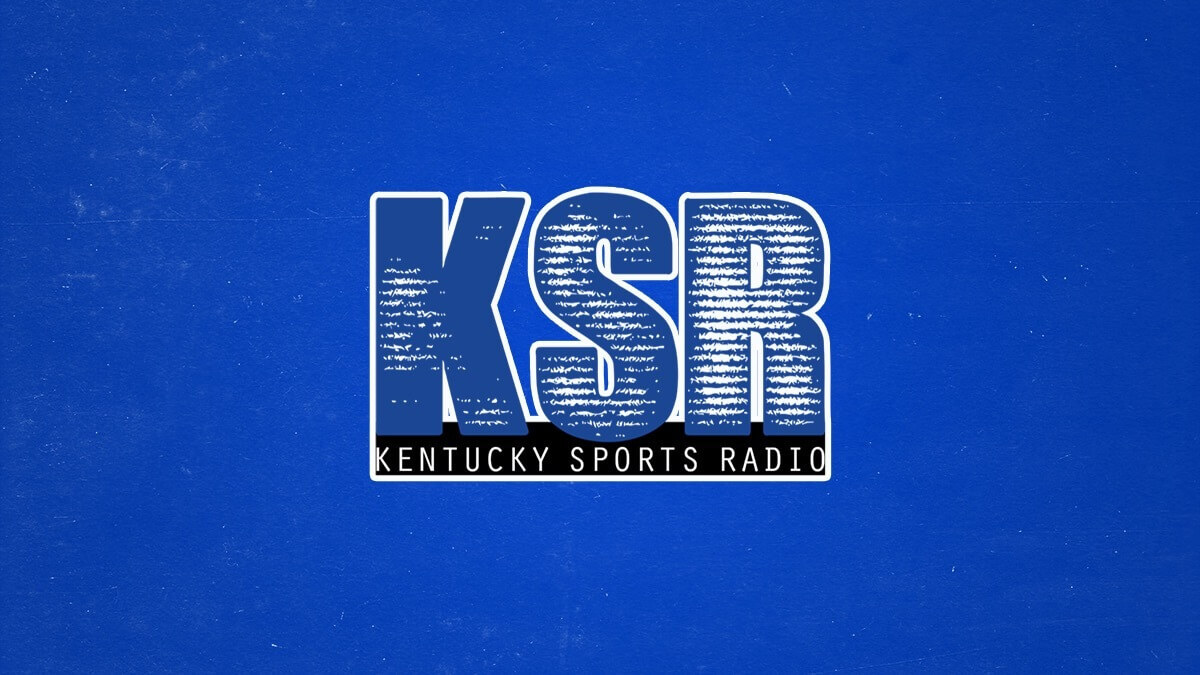
(Charles Bertram/Getty Images)
The cancellation of sports during the coronavirus pandemic has given us extra time to contemplate the past and future of the Kentucky basketball. Instead of further examining the uncertainty that lies ahead, let’s reflect on what could have been if a few other key moments in UK history ended just a tad bit differently both on and off the floor.
What if Jodie Meeks had returned for his senior year?
As a junior, Kentucky star guard Jodie Meeks led the SEC with 23.7 points per game on 46% shooting, 40.6% from three, and 90.2% from the free-throw line. Following his breakout season, the 6-foot-4 guard tested the NBA Draft waters, receiving late first to early second round grades.
After going back and forth on the decision, Meeks ultimately decided to turn down newly-hired head coach John Calipari and stay in the draft just hours before the deadline.
Without Meeks, the 2009-10 Kentucky team had plenty of star power with the likes of John Wall, Eric Bledsoe, DeMarcus Cousins, and Patrick Patterson, leading the Wildcats to a 35-3 overall record, an SEC Tournament title, and a No. 1 seed in the NCAA Tournament. What the team didn’t have, though, was elite shooting from deep, finishing the year No. 227 in the nation in 3-point shooting at 33.1% overall. No one on the roster shot better than 38.3% from three (Eric Bledsoe)
Those shooting struggles would ultimately cost the Wildcats a trip to the Final Four, as the team went an abysmal 4-32 from three in the Elite Eight against two-seed West Virginia, losing by a final score of 73-66.
Looking at Kentucky’s other two losses on the year, the team also shot just 25% from three at South Carolina and 9.1% on the road at Tennessee.
Would Meeks’ return have been enough to fix Kentucky’s shooting woes en route to a national championship? Could Meeks have helped put UK on top in the previous losses to put an undefeated run on the table?
What if Alex Poythress hadn’t torn his ACL?
Only eight games into his junior season, forward Alex Poythress went down with a torn ACL in practice, ending his season.
While the 2014-15 team obviously did just fine – they did manage a 38-0 start and a spot in the Final Four, after all – they were met by the Wisconsin Badgers, a revenge-seeking team loaded with elite talent on the wing, in the national semifinals.
Following Poythress’ injury, Kentucky got by with Trey Lyles on the wing, but their defensive dominance as a collective unit (specifically on the interior) masked the majority other individual flaws the team may have had. When tasked with guarding the likes of Sam Dekker and Nigel Hayes on the wing and Frank Kaminsky – one of the most skilled big men in college basketball – Kentucky found itself in matchup hell.
Willie Cauley-Stein had arguably his worst game as a Wildcat, Devin Booker was exposed defensively, and Lyles struggled to slow down Dekker, who came into the game on a ridiculous hot streak.
But what if Poythress hadn’t gotten injured and had taken the floor against Wisconsin that night?
Prior to the injury, Poythress was averaging just 5.5 points and 3.8 rebounds in just over 20 minutes per contest. Where he thrived, though, was on the defensive end of the floor, with the 6-foot-8 forward allowing just 85.5 points per 100 possession. To close out the season, only Karl-Anthony Towns, Cauley-Stein, and Dakari Johnson – Kentucky’s trio of seven-footers – finished with better defensive ratings.
With Poythress in the fold, Lyles could have gone back to the bench to anchor the second platoon while the junior forward could help neutralize Dekker – also a 6-foot-8 hybrid forward – and company in the Final Four game.
From there, Poythress would have been matched up against Duke forward Justise Winslow in the title game, with Kentucky matching up extremely well with the rest of the Blue Devil roster.
Was Poythress the answer to Kentucky’s 40-0 dreams?
What if John Calipari was hired in 2007 instead of Billy Gillispie?
At his introductory press conference back in 2009, John Calipari was outspoken about his love for the Kentucky basketball program and desire to take over back in 2007 following Tubby Smith’s tenure and prior to Billy Gillispie’s hiring.
“I called my wife every day for six days. Did they call? Did they call?” Calipari said. “Then I kind of figured out: They’re not calling.”
But what if the phone did ring two years before? What if Mitch Barnhart, who admitted he “just didn’t get it right” in the coaching search the first time around, did get it right?
Would Derrick Rose have asked Memphis to release his Letter of Intent in order to sign with Kentucky for the 2007-08 season? Would Kentucky executive associate athletics director Sandy Bell – known for being strict and thorough on compliance issues – have found Rose’s red flags regarding his SAT score ahead of time? Could the testing issue have been resolved prior to Rose arriving on campus with a retake of the test, resulting in a short suspension, perhaps?
Say Rose does play at Kentucky. Does a team of Rose, Ramel Bradley, Joe Crawford, Jodie Meeks, and Derrick Jasper compete for a title? Does Patrick Patterson somehow avoid a season-ending stress fracture in his ankle with less weight on his shoulders as a freshman?
Does Tyreke Evans follow Calipari to Kentucky the following year? How would a superstar trio of Evans, Meeks, and Patterson have meshed?
Two years more of Calipari and two years less of Gillispie sure does sound nice.
What if Rick Pitino never takes the Celtics job?
Following Eddie Sutton’s tenure and the Emery scandal, Rick Pitino was tasked with building the program from the ground up. Not only did he do just that, Pitino’s run in Lexington from 1989-1997 provided some of the most entertaining basketball we’ve seen in Kentucky basketball history.
In that time, Kentucky fans had the pleasure of watching the Unforgettables, the return to the Final Four in 1994, the Untouchables, and the Unbelievables. To this day, many argue the 1996 title team remains the best college basketball team of all time.
But what would happen if Pitino never took the Boston Celtics job in 1997?
Is Pitino still at Kentucky? Does he retire at UK? How many titles does he end up winning in Lexington? Known for his long-term development of players, how would he have adapted to the one-and-done era?
While we’ll never have answers to the hypotheticals, no one can question the direction the program was heading with Pitino, who very well could have won back-to-back-to-back titles in Lexington in 1996, 1997, and 1998. If Derek Anderson doesn’t tear his ACL in 1997, Kentucky likely does that anyway.
Say what we may about his post-Kentucky endeavors and off-court issues, Pitino had things rolling in Lexington, and almost certainly would have continued that trend for years had he not left for Boston.
“If he had stayed at Kentucky, he’d have four national championships by now, I really believe that,” ESPN analyst Jay Bilas told Adam Zagoria. “That program that he built went to three straight championship games and was an overtime period away from a three-peat [96-98]. If he had stayed there, the idea that that program wouldn’t have sustained excellence over time when he’s done that at Louisville, that doesn’t wash. He’s an extraordinary coach as a tactician, as a recruiter, as a motivator, as an in-game coach.”
“I think I do regret leaving Kentucky because I took over a team with 15 wins banking everything on the Tim Duncan lottery, and once we didn’t get Tim Duncan I realized that leaving Kentucky was not a good move,” Pitino said in a radio interview back in 2013.
What if Christian Laettner missed?
This one is much simpler, but just as significant as the other scenarios on the list, as Christian Laettner’s game-winning shot in the 1992 Elite Eight is easily the biggest gut-punch in Kentucky basketball history.
The Wildcats were coming off a two-year postseason ban following the Sutton era in Lexington, with four seniors – Richie Farmer, Deron Feldhaus, John Pelphrey, and Sean Woods – who remained loyal to the program through the probation and superstar forward Jamal Mashburn leading the way. The Unforgettables were on a path of greatness, and after 39 minutes and 58 seconds, it appeared they were set to do just that.
And then Laettner happened.
Following Woods’ one-handed runner to put the Cats up by one point with 2.1 seconds, Duke’s Grant Hill heaved a 79-foot pass to Laettner, who dribbled, turned, and lifted for the game-winning attempt, which fell as time expired to give the Blue Devils a 104-103 victory.
But what if he missed?
In what many consider to be the greatest NCAA Tournament game of all time, Kentucky would come out as the winner, thus earning a spot in the Final Four with a shot at the title.
Would Woods’ running one-hander in the final seconds be considered “The Shot” for the rest of our lives? Would Woods be credited with hitting one of the biggest shots in college basketball history?
From there, would Kentucky have been able to top two-seed Indiana in the national semifinal? Would they have been able to put a beatdown on six-seed Michigan the same way Duke did in the national championship?
Most importantly, what if we never had to never watch that horrible replay over and over again around tournament time?
If only.
In case you missed Nick Roush’s what-if scenarios for Kentucky on the gridiron featuring the likes of Jared Lorenzen, Austin MacGinnis, and Bear Bryant, check out the link below:
https://kentuckysportsradio.com/football-2/five-kentucky-football-what-ifs/
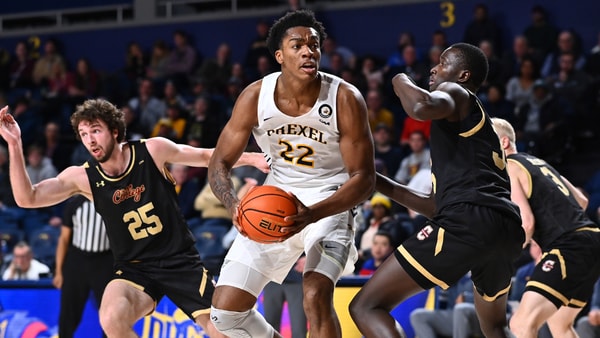
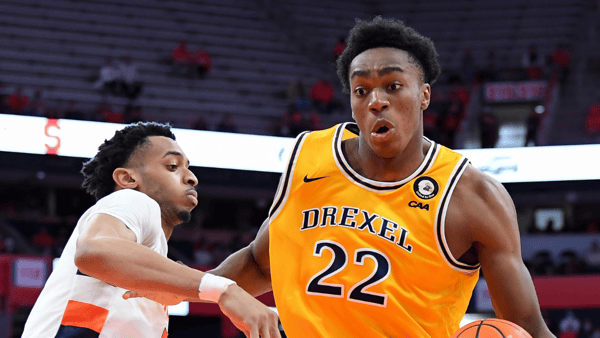
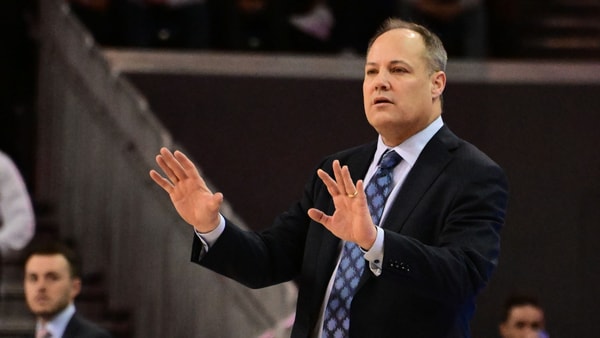
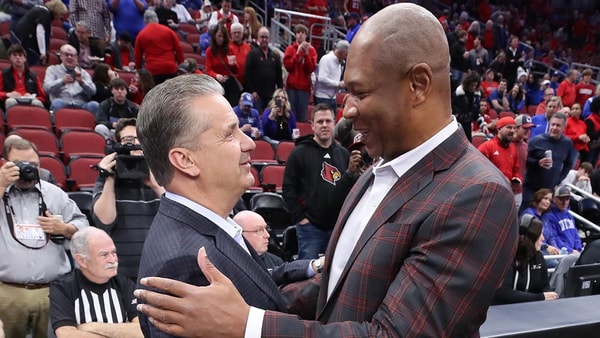
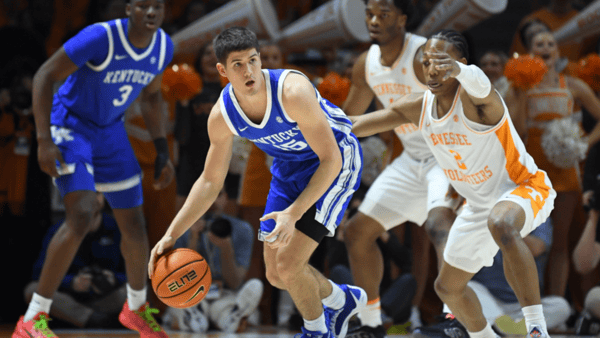
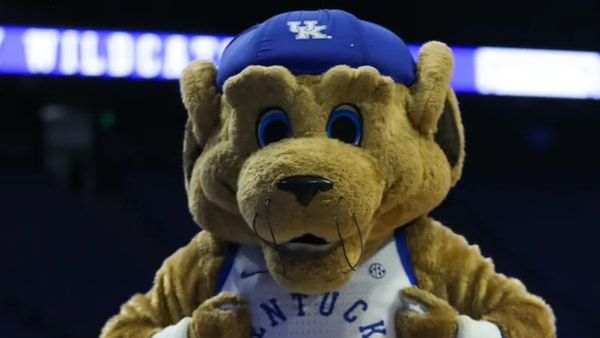
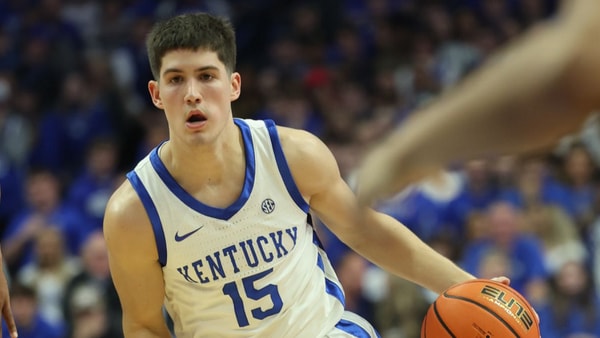
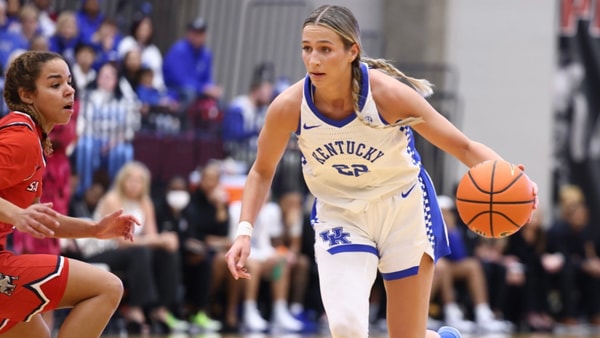
Discuss This Article
Comments have moved.
Join the conversation and talk about this article and all things Kentucky Sports in the new KSR Message Board.
KSBoard